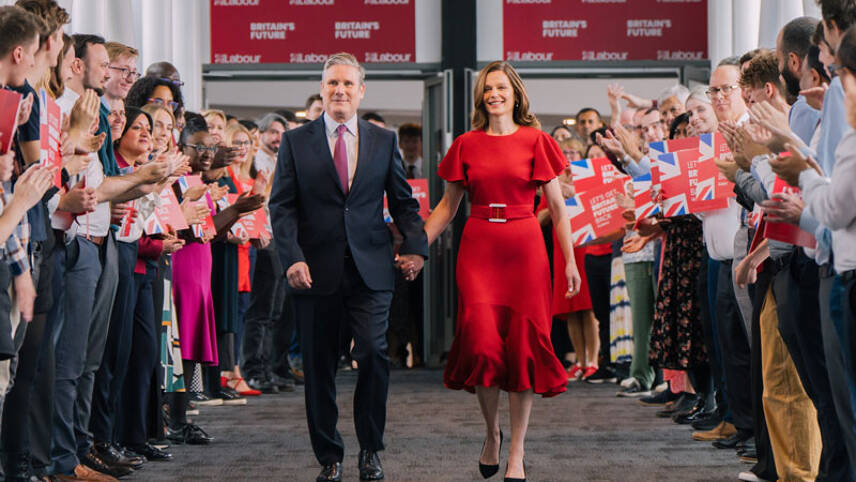Register for free and continue reading
Join our growing army of changemakers and get unlimited access to our premium content

Image: Labour Party
Starmer delivered his keynote speech at his Party’s annual conference in Liverpool today (11 October) and reiterated several green commitments already made by his Shadow Cabinet at the event so far – including the creation of a publicly owned energy company called GB Energy.
Environmental NGOs such as WWF and Friends of the Earth have praised Starmer for recognizing how a well-managed transition to net-zero would contribute to Britain’s ambitions for economic growth and levelling up.
Starmer stated that the global energy price crisis was affecting Britain acutely due to past failures to invest in renewables, insulation and gas storage.
He accused Prime Minister Rishi Sunak of repeating this process by weakening targets relating to vehicle electrification, building energy efficiency and low-carbon heating last month. Sunak said he took these measures to reduce upfront costs for households now; Starmer countered that this will simply pass costs and risks on to the next generation.
Starmer said Sunak’s choices are an example of “sticking plaster politics” and added: “Clean British energy is cheaper than foreign fossil fuels. That means cheaper bills for every family in the country. But also a chance to make us more competitive across the board.
“Countries like America are using this gift to create manufacturing jobs the like of which we haven’t seen for decades – and they’re not the only ones.
“So when Rishi Sunak says row back on our climate mission, I say speed ahead.”
Starmer was referring, here, to the US’s Inflation Reduction Act. The Act was passed last year and sets aside the single biggest package of Government funding for low-carbon industries ever provided. It is expected to result in a 40% reduction in energy-related emissions between 2021 and 2035.
The EU has countered with its own similar package, the Green Deal Industrial Plan.
Sunak’s Government has faced calls from major industry bodies including the Confederation of British Industry (CBI), the Aldersgate Group and the Society of Chemical Industry (SCI) to ready a British financial package for the green industrial transition. Chancellor Jeremy Hunt has stated that he is working on such a package ready for the Autumn Statement in November, after it was absent from the Budget in spring.
Labour published its own Green Prosperity Plan in June.
Green belt dilemma
It bears noting that no Shadow Cabinet members mentioned nature directly in their keynote speeches at the Labour Party Conferences. The environmental focus has very much been on the low-carbon transition in energy and industry.
However, Starmer did state that a Labour government would review rules on building on green belt land in a bid to accelerate the creation of new, affordable homes. This would support a target to deliver 1.5 million new homes over a five-year period.
The Conservative Party had been targeting 300,000 homes per year but this has not been a compulsory target since late 2022.
Organisations including Green Alliance are seeking assurances that a Labour government would not accelerate housebuilding at all costs, including the cost of missing nature pledges.
Natural England chair Tony Juniper posted on X (formerly Twitter): “Several reports today dismiss greenbelt as ‘scrubland’, the implication being that development on such land is better than what’s there now. ]The] truth is that expanding scrub is one of the quickest ways we can make progress for nature recovery. Quite worrying.”
Juniper added in a separate post a call for the Government to accelerate the development of a nationwide land-use strategy to end debates that pitch nature against farming, housebuilding and energy security.
Starmer said in his speech that Labour would not “tear up the green belt” but rather reconsider whether plots of land such as disused car parks should be reclassified. He also told The Sunday Times that it would be “right” to maintain a “brownfield-first approach”.


Please login or Register to leave a comment.